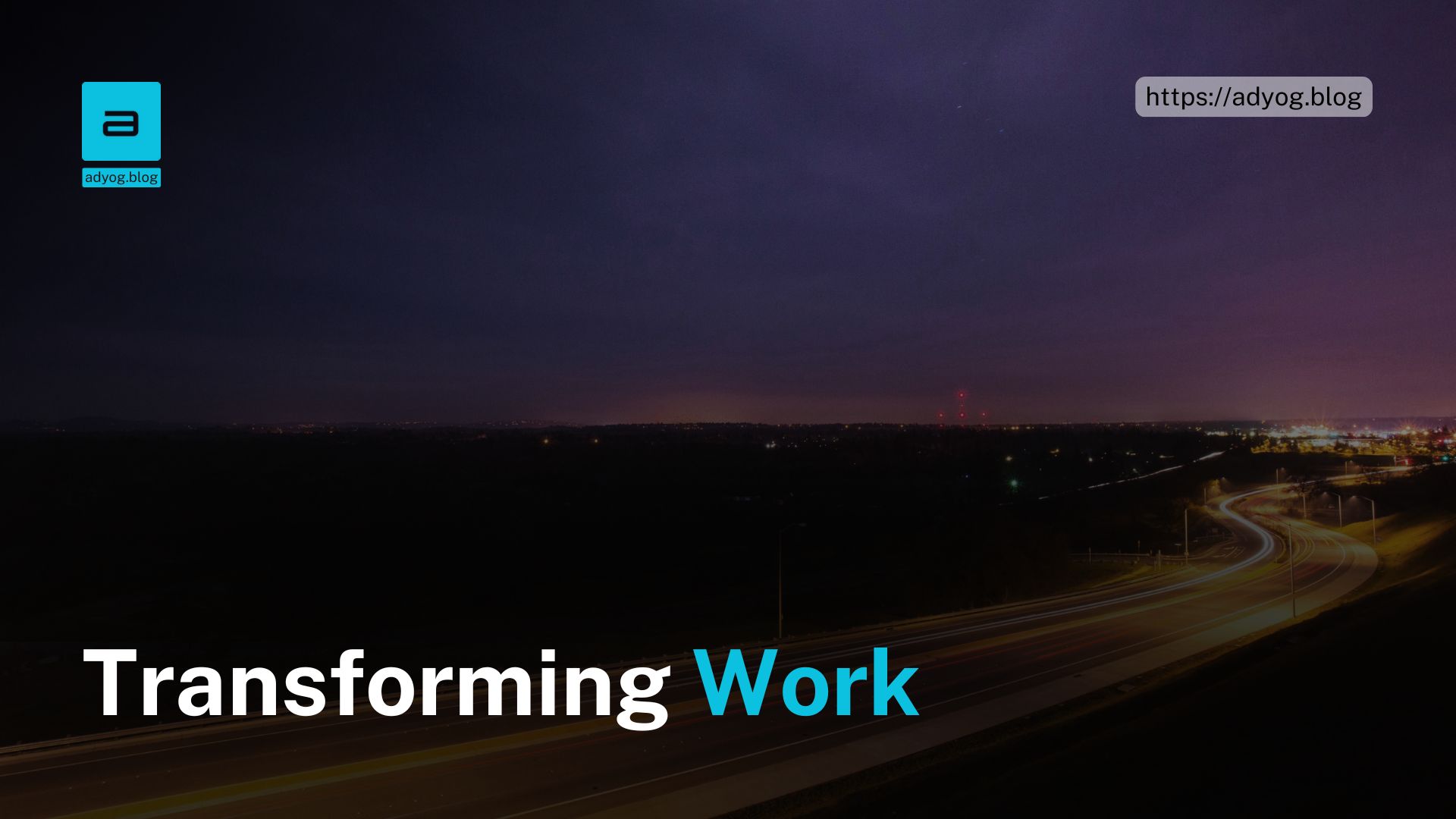Artificial intelligence (AI) is set to redefine industries and transform the workplace as we approach 2025. With advancements in AI agents, generative AI, and automation, businesses face unprecedented opportunities and challenges. This article explores how AI in 2025 will revolutionize industries, impact the global workforce, and drive economic growth, while addressing ethical concerns and risks.
AI in the Workforce: Transformation or Disruption?
By 2025, AI is anticipated to play a central role in reshaping the workforce. Technologies like generative AI and advanced AI agents are already automating repetitive tasks, and they’re projected to encroach on more complex roles, such as mid-level engineering and customer service.
Projected Impact
- Job Transformation: AI is expected to take over routine and administrative tasks, enabling workers to focus on higher-value activities. For instance, financial analysts might shift from compiling data to interpreting it more strategically.
- Job Displacement: According to Bloomberg, Wall Street could lose as many as 200,000 jobs over the next five years as AI automates back-office and operational roles. However, this displacement is not absolute—new roles in AI oversight and maintenance are emerging.
Current Benchmarks
As of 2024, AI adoption in workplaces has reached approximately 15–20% in industries like customer service and manufacturing. By 2025, this figure is projected to exceed 50%, driven by AI agents’ ability to autonomously execute workflows and solve problems in real time.
Infrastructure Needs for an AI-Driven Future
Building an AI-powered future requires significant investments in infrastructure, from energy grids to computational resources. OpenAI’s recent policy blueprint emphasizes the importance of chips, data centers, and renewable energy as critical components for maintaining AI leadership.
What’s Needed
- Compute Power: The demand for high-performance GPUs and TPUs has already outstripped supply, necessitating federal and private-sector investment.
- Energy Investments: AI’s reliance on massive compute resources means increased energy demand. Developing green energy solutions, such as solar arrays and nuclear power, is key to sustainable growth.
- Talent Pipelines: To ensure competitiveness, countries must cultivate AI expertise through targeted education initiatives.
Case Study
In 2024, NVIDIA collaborated with Microsoft to build AI supercomputers that dramatically reduced the cost of training large language models. This collaboration highlights the role of public-private partnerships in addressing infrastructure bottlenecks.
Balancing Opportunities and Risks
While the benefits of AI are vast, its risks cannot be overlooked. Striking the right balance between innovation and regulation is essential for sustainable progress.
Opportunities
- Productivity Gains: 80% of businesses expect AI to increase productivity by at least 5%, according to a 2024 McKinsey report.
- New Business Models: AI is enabling startups to build vertical-specific solutions, such as AI-driven medical diagnostics or legal contract analysis.
- Creative Enablement: Generative AI tools like OpenAI’s DALL-E and Google’s Gemini are empowering marketers and designers to prototype and create faster than ever.
Risks
- Bias and Discrimination: AI models trained on biased datasets risk perpetuating inequities in hiring, lending, and policing.
- Cybersecurity Threats: As AI grows more powerful, it could be weaponized to create deepfakes or hack systems more efficiently.
- Job Polarization: While AI creates high-skilled jobs, it could widen economic disparities by disproportionately impacting low-skilled workers.
Ethical Frameworks in Development
Organizations and governments are working to mitigate these risks:
- The EU’s AI Act aims to regulate high-risk AI systems, ensuring transparency and accountability.
- Companies like Google and Microsoft have adopted internal AI ethics boards to guide development and deployment.
AI’s Global Landscape
Although much of the AI narrative is U.S.-centric, global developments reveal a dynamic and competitive landscape.
China
China’s government has made AI a national priority, investing billions in AI hubs across cities like Shanghai and Shenzhen. By subsidizing AI startups and training programs, it aims to surpass the U.S. in model sophistication and deployment.
Europe
The EU leads in AI regulation, focusing on ethical AI through the AI Act. This regulatory approach seeks to establish Europe as a leader in responsible AI, though critics warn it could stifle innovation.
Developing Nations
AI adoption in developing regions, such as Southeast Asia and Africa, is gaining momentum through initiatives like Google’s “AI for Social Good,” which targets local challenges like crop disease detection and flood forecasting.
Agentic AI: A Game-Changer for Businesses
Agentic AI, capable of autonomous decision-making and execution, represents the next frontier in automation. Businesses are already experimenting with AI agents for customer service, workflow automation, and marketing.
How It Works
AI agents mimic human behavior to perform tasks autonomously. For example:
- Customer Service: AI bots like Salesforce’s Einstein handle queries 24/7, providing real-time assistance and reducing wait times.
- Sales Automation: Platforms like Lindy.ai draft email responses, schedule follow-ups, and enrich CRM data without human intervention.
- Creative Workflows: Tools like RunwayML generate video storyboards, accelerating ad campaign prototyping.
Practical Steps for Businesses
To prepare for AI’s transformation, businesses should take the following steps:
- Audit Workflows: Identify repetitive, time-consuming tasks that could be automated.
- Experiment with AI Agents: Start small with platforms like Lindy.ai to automate simple processes.
- Upskill Employees: Provide training on AI tools to ensure your workforce adapts to the changes.
- Adopt Ethical Practices: Establish guidelines to ensure AI usage aligns with your company’s values and avoids potential harm.
The Road Ahead
As we look toward 2025, AI offers immense potential to reshape industries, redefine work, and drive economic growth. However, realizing these benefits requires careful planning, robust infrastructure, and a commitment to ethical practices. Businesses that embrace AI proactively and responsibly will not only thrive but also lead the way in this dynamic and transformative era.





Leave a Reply